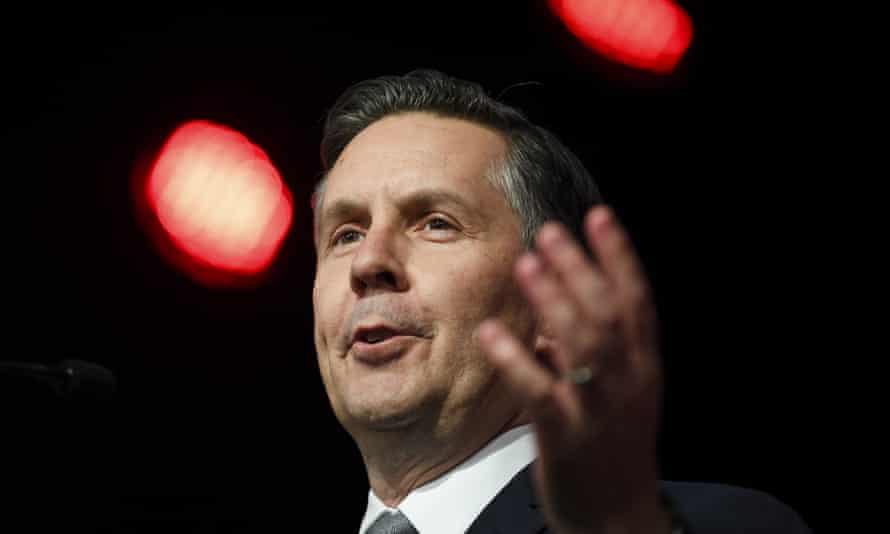
Fletcher says Labor government a ‘parliamentary go-slow’
The proposed parliamentary sitting schedule for the rest of the year was released last night, and the opposition was quick to criticise the government for its “remarkably light” schedule.
Almost as soon as the schedule was released, opposition spokesman for business in the house, Paul Fletcher, released a statement criticising it for being too short.
This, of course, comes after the Coalition had designed a schedule with just 10 sitting days before August 2022.
Dan Tehan says Labor has given “no good reason” why parliament isn’t sitting until July.
In government, the Coalition designed a schedule with just 10 sitting days before August 2022.
Parliament, optional in govt, VITAL in opposition.#auspoI https://t.co/NiqSxwRwIF
— Paul Karp (@Paul_Karp) June 13, 2022
Nonetheless, here is what Fletcher had to say:
The Albanese Labor government is on a parliamentary go-slow.
Total sitting days for the House of Representatives for 2022 will be just 40. This is a dramatic drop from 67 in 2021 and 58 in 2020.
The latest day for return of the writs is 28 June and Labor is just scraping in within the 30 day period by reconvening Parliament on 26 July.
This is entirely at odds with Labor’s claim that they do not waste a day.
Richard Marles arrives in India
Deputy prime minister and defence minister, Richard Marles, arrived in India earlier this morning for his scheduled trip, where he will meet his Indian counterpart, Rajnath Singh.
Marles’ trip is intended to engage a “top-tier partner”, to discuss defensive cooperation and ambitions for an “open, inclusive and resilient Indo-Pacific”.
Arrived in India – a top-tier partner + close friend to Australia.
I look forward to advancing our ongoing defence engagement as Comprehensive Strategic Partners and reiterate our commitment for closer cooperation in the #IndoPacific. pic.twitter.com/68bxyCkxyf
— Richard Marles (@RichardMarlesMP) June 20, 2022
Federal health minister says long Covid a ‘major health challenge’
The federal health minister, Mark Butler, has begun the daily round of politicians in the media this morning, appearing on Sunrise and warning that there could be “very big” numbers of Australians suffering from long Covid.
Butler said the large Omicron wave may have contributed to the rising rates of long Covid, adding it was proving to be a “major health challenge”:
When you get the sort of numbers of Covid that we have had here in Australia – literally millions and millions of Australians – that is going to translate into very big numbers of people experiencing long Covid symptoms.
I am very keen to talk with clinicians, researchers, have a look at the international research as well, and start to make sure our health system is prepared for what will be a very big wave of people experiencing these very long symptoms.
We are seeing dozens and dozens of deaths every week. This is still a very serious health challenge which we cannot take lightly.

Good morning
Good morning, Mostafa Rachwani with you this morning. I’ll be taking you through what I’m sure will be another busy day.
We begin with the Australian Competition and Consumer Commission, who will conduct an investigation into energy prices, including an assessment of power companies and whether they are gaming the system for profit. Commission chair, Gina Cass-Gottlieb, told the Nine newspapers the ACCC had “real breadth of powers” to investigate companies’ behaviour.
It comes as former chair Rod Sims pens an opinion piece for Guardian Australia today, saying the government should push against “the instincts of the corporate sector” and introduce more competition into the market. Sims argues there is inadequate competition in Australia, and that the government should be the one to foster greater competition.
There are two state budgets due today, from the New South Wales and Queensland state governments. The NSW government has already flagged a wide range of measures, including a $5.8bn investment into an extra year of education and $4.5bn boost to the health sector.
The Palaszczuk government’s eighth budget will also be handed down today, and expectations will be that the focus will be on health and cost of living measures, including a $175 electricity rebate expected to be introduced.


